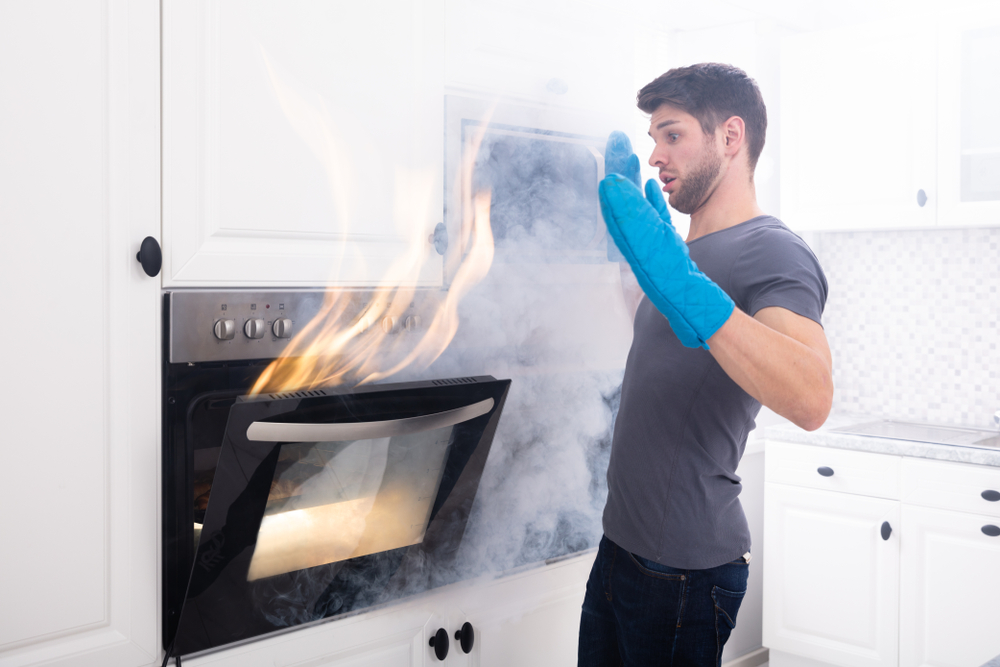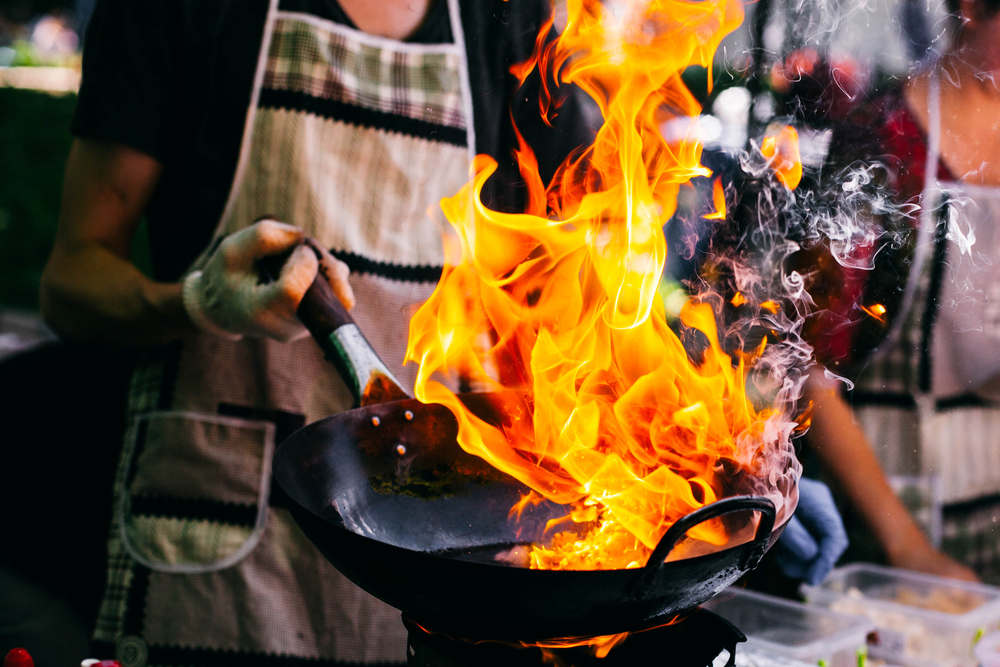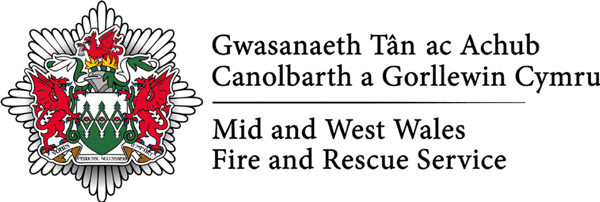More than half of accidental fires at home are started by cooking. Many kitchen fires happen when people are not paying attention or they leave things unattended.




Cooking Safely
- Make sure saucepan handles don't stick out - so they don't get knocked off the stove
- Take care if you're wearing loose clothing - they can easily catch fire
- If your clothes catch on fire, stop, drop and roll
- Stop what you are doing
- Drop to the ground
- Roll to smother the flames
- Keep tea towels and cloths away from the cooker and hob
- Double check the cooker is off when you've finished cooking
- Avoid leaving children in the kitchen alone when cooking on the hob
- Take care if you need to leave the kitchen whilst cooking, take pans off the heat or turn them down to avoid risk
- Keep the oven, hob and grill clean and in good working order. A build up of fat and grease can ignite a fire
- Use spark devices to light gas cookers – they are much safer than matches or lighters, as they don’t have a naked flame. They are safer around children, too.
- Check toasters are clean and not placed under kitchen cabinets or close to anything that can catch fire.
- Never put anything metal in the microwave.
- Avoid cooking if you are very tired, have been drinking alcohol, or are taking medication that can make you drowsy.
Deep fat frying
- Take care when cooking with hot oil - it sets alight easily.
- Never fill a pan more than one third full of fat or oil.
- Make sure food is dry before putting it in hot oil so it doesn't splash.
- If the oil starts to smoke - it's too hot. Turn off the heat and leave it to cool.
- Use a thermostat controlled electric deep fat fryer. They can't overheat.
What to do if a pan catches fire
- Don't take any risks. Turn off the heat if it is safe to do so. Never throw water over it.
- Don't tackle the fire yourself - Get Out, Stay Out, Call 999.
Your kitchen electrical appliances
- Essential electrical items such as your fridge and freezer are designed to be left on 24/7 to store food at the right temperature
- Washing machines, tumble dryers and dishwashers are not designed to be left on overnight or whilst out of the house. Some may have a timer setting but having the appliance on whilst you’re unable to monitor it creates a risk to your kitchen.
- Work top appliances such as your toaster and kettle should never be positioned near anything which could catch light e.g. curtain, kitchen roll or too close to an overhanging cupboard.
- Always use your appliances as directed by the manufacturer’s instructions.

